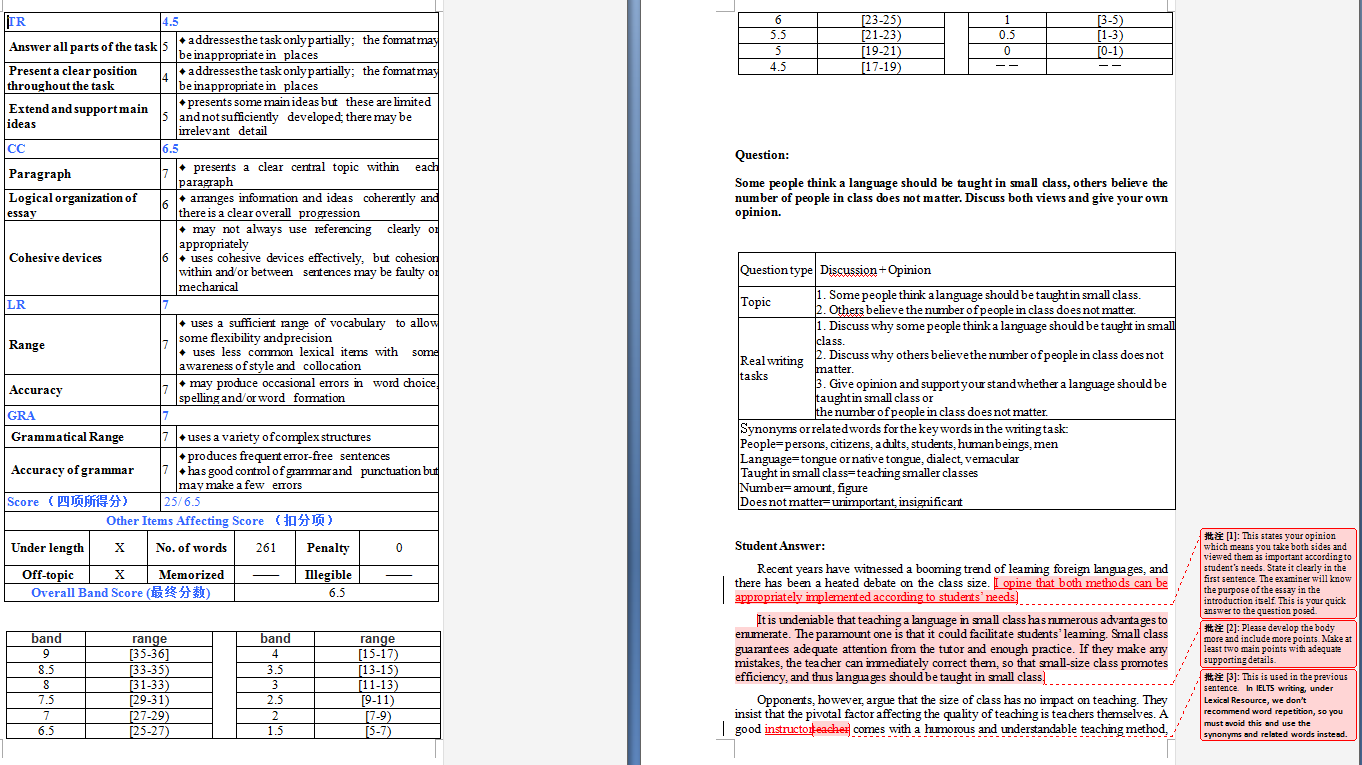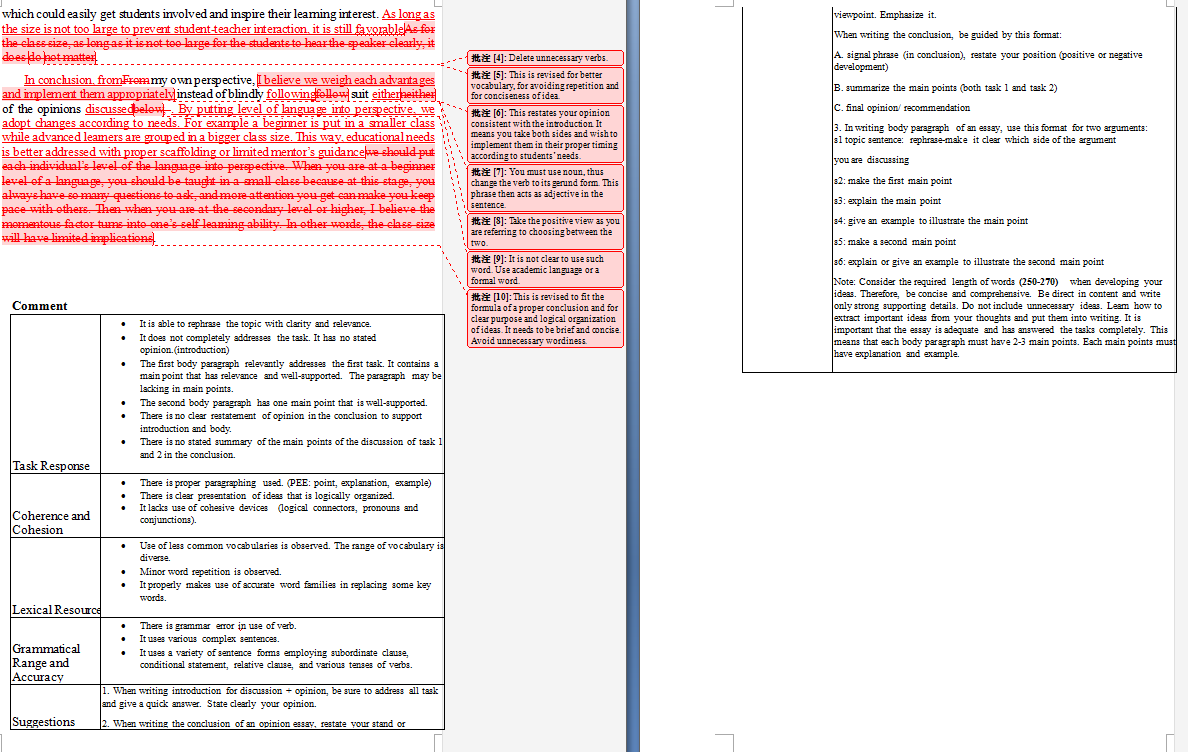| 雅思英语类别: 雅思口语,托福口语,日常英语口语,商务英语口语,以及幼儿英语口语。 同时本公司也承接雅思口语陪练,留学服务,雅思作文批改等业务。
如下为同学雅思原文: Some people think a language should be taught in small class, others
believe the number of people in class dose not matter. Discuss both views and
give your own opinion. Recent years have witnessed a booming trend of learning foreign
languages, and there has been a heated debate on the class
size.
It is undeniable that teaching a language in small class has
numerous advantages to enumerate. The paramount one is that it could facilitate
students’ learning. Small class guarantees adequate attention from the tutor
and enough practice. If they make any mistakes, the teacher can immediately
correct them, so that small-size class promotes efficiency, and thus languages
should be taught in small class.
Opponents, however, argue that the size of class has no impact on
teaching. They insist that the pivotal factor affecting the quality of teaching
is teachers themselves. A good teacher comes with a humorous and understandable
teaching method, which could easily get students involved and inspire their
learning interest. As for the class size, as long as it is not too large for
the students to hear the speaker clearly, it does do not matter.
From my own perspective, instead of blindly follow suit neither of the
opinions below, we should put each individual’s level of the language into
perspective. When you are at a beginner level of a language, you should be
taught in a small class because at this stage, you always have so many
questions to ask, and more attention you get can make you keep pace with
others. Then when you are at the secondary level or higher, I believe the
momentous factor turns into one’s self-learning ability. In other words, the
class size will have limited implications.
Here’s a question I want to ask:
Shall I retell the two opinions in my first paragrath? 如下为外教修改后的作文:
 
如下为下载链接(包含了同学原片以及修改后的,请下载后电脑查看,手机无法看到完整版):
雅思作文批改.rar |
